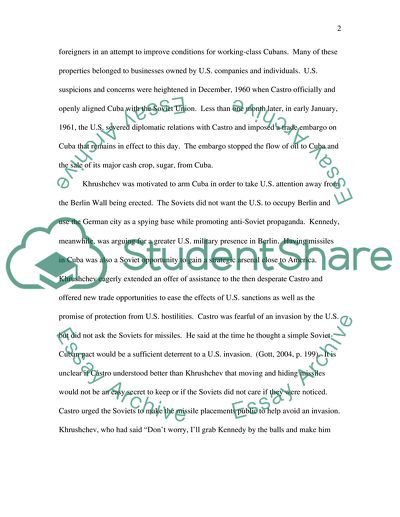Cite this document
(“The Cuban Missile Crisis Essay Example | Topics and Well Written Essays - 1750 words”, n.d.)
The Cuban Missile Crisis Essay Example | Topics and Well Written Essays - 1750 words. Retrieved from https://studentshare.org/politics/1712769-ethical-argument-essay
The Cuban Missile Crisis Essay Example | Topics and Well Written Essays - 1750 words. Retrieved from https://studentshare.org/politics/1712769-ethical-argument-essay
(The Cuban Missile Crisis Essay Example | Topics and Well Written Essays - 1750 Words)
The Cuban Missile Crisis Essay Example | Topics and Well Written Essays - 1750 Words. https://studentshare.org/politics/1712769-ethical-argument-essay.
The Cuban Missile Crisis Essay Example | Topics and Well Written Essays - 1750 Words. https://studentshare.org/politics/1712769-ethical-argument-essay.
“The Cuban Missile Crisis Essay Example | Topics and Well Written Essays - 1750 Words”, n.d. https://studentshare.org/politics/1712769-ethical-argument-essay.


